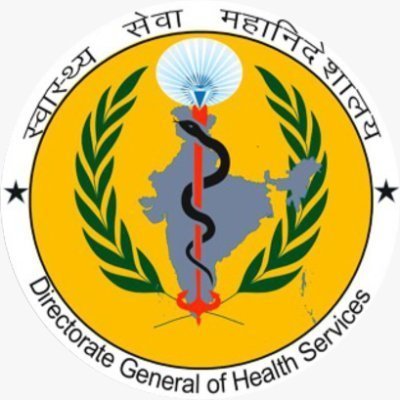
Urethral Stricture Treatment in Delhi
Urethral stricture is a condition where the urethra, the thin tube that carries urine from the bladder to the outside of the body, becomes abnormally narrow due to scar formation. This narrowing restricts the passage of urine and places extra strain on the bladder, which can lead to troubling urinary symptoms, infections, and long-term complications if not treated properly. Patients often report a weak urine stream, difficulty in starting or maintaining flow, painful urination, a sense of incomplete emptying, and recurrent urinary tract infections. In severe cases, complete blockage of urine may occur, requiring urgent medical attention.
There are several causes behind urethral strictures. They can develop after medical procedures involving catheterization or endoscopy, following an infection such as urethritis, or after direct injury to the urethra or pelvis (as in road traffic accidents). In some men, skin conditions like lichen sclerosus can gradually cause narrowing. Sometimes, however, no clear cause is found, and the condition is labeled as idiopathic.
Fortunately, highly effective options for urethral stricture treatment in Delhi and India are available, ranging from modern diagnostic imaging to advanced surgical techniques. The first step in management is accurate diagnosis, usually through tests like the MCU (Micturating Cystourethrogram) and RGU (Retrograde Urethrogram). These specialized X-rays help the urologist determine the exact site, length, and severity of the narrowing. Once the stricture is mapped, an appropriate treatment can be selected.
For short and simple strictures, minimally invasive procedures like OIU (Optical Internal Urethrotomy) or VIU (Visual Internal Urethrotomy) may be recommended. These are endoscopic treatments where the scar is incised under direct vision, allowing urine to flow freely again. Recovery is usually quick, though recurrence can occur, and repeated failures often point towards a more definitive solution.
The gold-standard treatment for longer or recurrent strictures is urethroplasty. This reconstructive surgery repairs or rebuilds the narrowed urethra using techniques such as end-to-end anastomosis or grafts from the patient’s own tissue (often from the inner cheek). For patients with pelvic fracture-related urethral distraction defects, a more specialized operation known as progressive perineal urethroplasty may be required. These surgeries offer the highest long-term success rates.
In terms of affordability, India remains one of the most cost-effective destinations for high-quality urological care. The urethral stricture treatment cost in Delhi typically ranges from ₹25,000–₹70,000 for OIU/VIU procedures, while urethroplasty is usually between ₹1.2 lakh and ₹2.5 lakh, depending on the complexity of the case. This makes Delhi an attractive option not only for Indian patients but also for international patients seeking world-class expertise at reasonable prices.
This comprehensive guide covers everything you need to know—causes, symptoms, diagnosis, treatment options, costs, recovery, and FAQs—so you can understand your condition better and choose the right path to recovery. Whether you are researching for yourself, a family member, or considering traveling for urethral stricture treatment in India, this information is designed to give you clarity and confidence at every step.
Causes of Urethral Stricture
Several factors can contribute to the development of urethral stricture, including:
- Trauma or Injury: Direct impact or injury to the pelvic area, such as from accidents, falls, or medical procedures like catheterization.
- Infections: Sexually transmitted infections (STIs) like gonorrhea and chlamydia, or repeated urinary tract infections (UTIs).
- Surgical Procedures: Prior urethral surgeries, catheter placements, or prostate surgeries can lead to scar formation and narrowing of the urethra.
- Congenital Conditions: Some individuals are born with a naturally narrow urethra, which may develop into a stricture over time.
- Radiation Therapy: Used in prostate or bladder cancer treatments, radiation exposure can cause scarring in the urinary tract.
- Lichen Sclerosus: A chronic skin condition that affects the genital area and may lead to urethral scarring.
Video on Urethral Stricture Treatment
Symptoms of Urethral Stricture
The symptoms of urethral stricture can range from mild to severe, depending on the degree of narrowing. Common symptoms include:
- Weak or slow urine flow
- Straining to urinate
- Painful urination (dysuria)
- Frequent urge to urinate
- Incomplete bladder emptying
- Dribbling of urine
- Blood in urine (hematuria)
- Recurrent urinary tract infections (UTIs)
- Urinary retention (in severe cases, inability to urinate)
Diagnosis of Urethral Stricture
To accurately diagnose urethral stricture and determine its severity, several tests may be conducted, including:
- Physical Examination & Medical History: A urologist will assess the patient’s symptoms, history of infections, injuries, or previous medical procedures to understand potential causes.
- Uroflowmetry: This test measures the urine flow rate and detects any blockages or obstructions in the urethra.
- Cystoscopy: A small, flexible camera (cystoscope) is inserted into the urethra to visualize the location and extent of the stricture directly.
- Retrograde Urethrogram (RGU) & Micturating Cystourethrogram (MCU): These specialized X-ray tests use contrast dye to highlight the structure of the urethra and determine the exact location and severity of the stricture.
- Ultrasound: Urethral ultrasound helps in assessing scar tissue formation and narrowing of the urethral passage.
Urethral Stricture Treatment In Delhi, India
OIU / VIU (Optical or Visual Internal Urethrotomy)
Endoscopic incision of the stricture under vision—performed with a cold knife or laser.
Best for: short, soft strictures (often first-time or early recurrences).
Anaesthesia: short general/regional; Catheter: usually a few days.
Recovery: Many patients resume light activity in ~7–10 days.
Recurrence: possible; repeated narrowing typically prompts reconstructive surgery.
Indicative Delhi cost: ₹25,000–₹45,000.
Urethroplasty (Definitive Reconstruction)
Preferred for recurrent, long, or complex strictures; highest long-term success.
Techniques include:
- End-to-end anastomosis: excise scar; join healthy ends
- Augmentation with graft (commonly buccal mucosa)
- Local flaps in selected cases
Indicative all-inclusive cost: Indian patients ~₹1.2 lakh; international ~USD 3,000.
Progressive Perineal Urethroplasty (for PFUDD after Pelvic Fracture)
For (PPU Treatment in Delhi) pelvic fracture urethral distraction defects, the progressive perineal approach reconnects the urethra and aims to get patients catheter-free again.
Timing: typically after fracture healing; MCU/RGU is repeated for planning.
Stay & recovery: regional anaesthesia; around a week in hospital; urethral catheter often ~3 weeks before trial of void.
Urethral Stricture Treatment Cost in Delhi, India
When considering treatment, one of the most important factors for patients is understanding the Urethral Stricture Treatment cost in Delhi, India. The overall expense depends on the diagnostic tests required, the type of procedure chosen, and the complexity of the stricture. For diagnosis, an RGU (Retrograde Urethrogram) and MCU (Micturating Cystourethrogram) are usually performed, and each test costs around ₹5,000 in Delhi. If the stricture is short and suitable for minimally invasive management, an OIU (Optical Internal Urethrotomy) or VIU (Visual Internal Urethrotomy) may be recommended, with costs generally ranging between ₹25,000 and ₹70,000 depending on whether a cold-knife or laser technique is used and the hospital category. For longer, recurrent, or more complex strictures, urethroplasty is considered the gold standard. In India, the cost of urethroplasty usually falls between ₹1.2 lakh and ₹2.5 lakh, with many centers offering packages such as ₹1.2 lakh for Indian patients and around USD 3,000 for international patients.
FAQs on Urethral Stricture Treatment
A urethral stricture is a narrowing of the urethra (urine passage) caused by scarring, which blocks or restricts the flow of urine.
Typical symptoms include a weak urine stream, straining to pass urine, burning sensation, incomplete emptying of the bladder, frequent urinary infections, and sometimes complete blockage of urine.
Doctors usually recommend imaging tests like an RGU (Retrograde Urethrogram) and MCU (Micturating Cystourethrogram) to map the length and location of the stricture. Uroflowmetry and cystoscopy may also be used.
OIU (Optical Internal Urethrotomy) or VIU (Visual Internal Urethrotomy) are minimally invasive endoscopic procedures where the scar tissue is cut under vision to restore urine flow.
Urethroplasty is a reconstructive surgery to permanently repair or rebuild the narrowed urethra. It is recommended for recurrent, long, or complex strictures where OIU/VIU may not be successful long-term.
While not directly life-threatening, untreated strictures can lead to severe complications such as kidney damage, urinary retention, and infections.
Yes, Urethroplasty offers a permanent cure with a high success rate. Minimally invasive options like OIU provide temporary relief but may have a recurrence risk.
Yes, recurrence is possible, especially after OIU/VIU. Urethroplasty offers the highest long-term success and lowest recurrence rates when performed for suitable cases.
The cost varies based on the severity and type of treatment. Optical Internal Urethrotomy (OIU) costs around ₹50,000 - ₹70,000, while Urethroplasty costs between ₹1,20,000 - ₹2,50,000 in India.
After OIU/VIU, patients usually resume light activities within 7–10 days. Urethroplasty has a longer recovery period, with a catheter in place for 2–3 weeks and gradual return to normal activity after follow-up.






